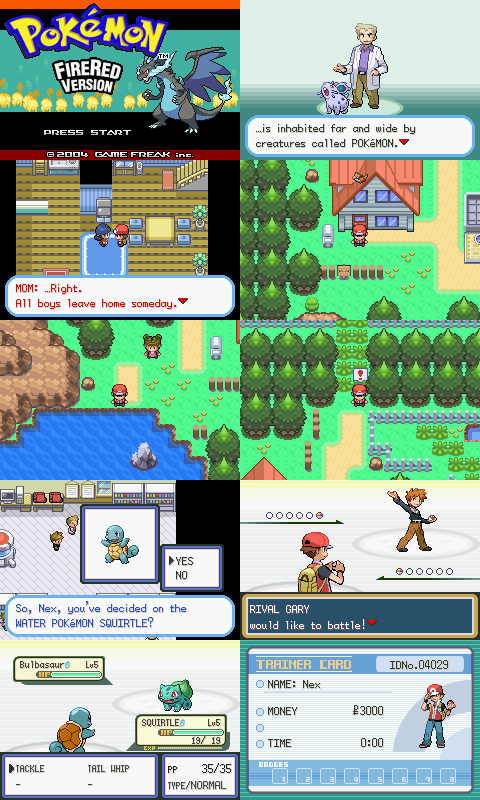Pokemon Hacks For Nds
Contents • • • • • • • • • • • • • • • • • • • • • • • • • • • • • • • • • • • • • • • • • • • • • • • • • • • • • • • • • • • • • • • • • • • • • • • • • • • • • • • • • • • • • • • • • • • • • • • • • • • • • • • • • • • • • • • • • • • • • • • • • • • • • • • • • • • • • • • • • • • • • Foreword This manual explains the 'raw' or 'internal' cheat system in desmume. The 'raw' or 'internal' cheats include cheat-finding facilities where you may manually search for and alter the memory positions which work to your advantage. This article will provide a rundown of the cheat searching menu and functions, followed by a pair of examples.
Pokemon Ruby Rom it is available now with all cheats for 2018, hacks and of course the beautifully dedicated emulator. Come with us and learn how to play this game, learn about his history and how to play Pokemon Ruby Rom.
Please note that, in post-0.9.2 versions, there is also the support for Action Replay cheat codes. The cheat system described here is referred to as 'raw' or 'internal' cheats. The Cheat Menu The cheat searching menu can be found in the toolbar under: Emulation Cheats Search.
The initial cheat window has the following options: Select Size Select the memory addresses' size for the value you are searching for. Choose the smallest range applicable to the value you're trying to change. If you're trying to change an energy value which maxes out at 100, choose 1 byte (which has a range of 0 to 255). If you're trying to change HP and it maxes out in the game at 9999, choose 2 bytes (which has a range of 0 to 65536), etc.
It usually is inadvisable to use larger memory sizes than required, as it may have undesirable effects on your game. Sign Select whether the memory address should be signed or unsigned.
A signed memory refers to a memory that can include both positive or negative numbers. So if the value you're searching for can be less than zero, it is likely to be a signed memory type.

Do note that when choosing a memory as signed, the range is halved in both directions. 1 byte, rather than covering a range of 0 to 255, will cover a range of -128 to +127 (not -255 to +255). This option does not work in 0.9.2 Select Search Type Select the type of search you would like to perform. In some cases, the exact value you're searching for is unknown - such as hidden, or non-numerical values. Exact searches allow you to enter a known value (say, 100 for energy), and then continue with known values.
A comparative search allows you to search for an unknown value by comparison - You run an initial search, and in following searches you narrow the possible values down by choosing whether the value increased, decreased, changed in any direction, or remained the same. Examples Of Usage The following provide theoretical examples for using the cheat searching system in both exact and comparative search modes. Example 1: Modifying A Known Value Let's assume you are playing a game in which your character currently has 100 health points. What we'll try to do is freeze his health at that value. First thing you'll need to do is figure out the size of the memory address you're attempting to modify.
Pokemon Rom Hacks List
Your character in the game has 100 health points, and that is the highest value it can reach throughout the game. You'll choose '1 byte', unsigned, exact search.

'1 byte' because you need to use the smallest possible memory size which fits the value you're changing, unsigned because the hero's health points can not be less than zero, and exact search because his health points can be clearly seen. Click 'search', and enter the health points value in the next window. In this case, it's 100. Click 'search again'.
Top Posts
- Revit 2016 32 Bit
- Find License Keys On Computer
- Breaking Dawn 2 Free
- Ms Office 2010 Activation Keys
- Bollywood Movies 2018 Download
- Watch The Last Airbender 2 Movie Online
- Call Of Duty Bo2 Crack
- Download Body Heat Full Movie
- Spongebob Pc Download
- Vray Sketchup 2015 64 Bit
- Mbkd Llc
- New South Movies Download Hd
- All Pdf Books Free Download
- Download Jodha Akbar Full Movie
- Gana Love Songs Download
- Championship Manager Game
- Reasonable Doubt Download Zip
- Autocad 2019 Keygen X Force
- Autocad 2013 Free Download
- Hotstar Live Tv Star Jalsha
- Tamil Love Album Video Songs
- Peliculas Gratis En Ingles Subtituladas
- Planovac Ciest Na Mape
- Rocscience Slide Technical Manual
- English Conversation Practice Grant Taylor
- Kissanime Fairy Tail Dub
- Miele 30 Gas Cooktop
- Youtube Hindi Hd Video Songs
- Blacklionmusic Musica Latina